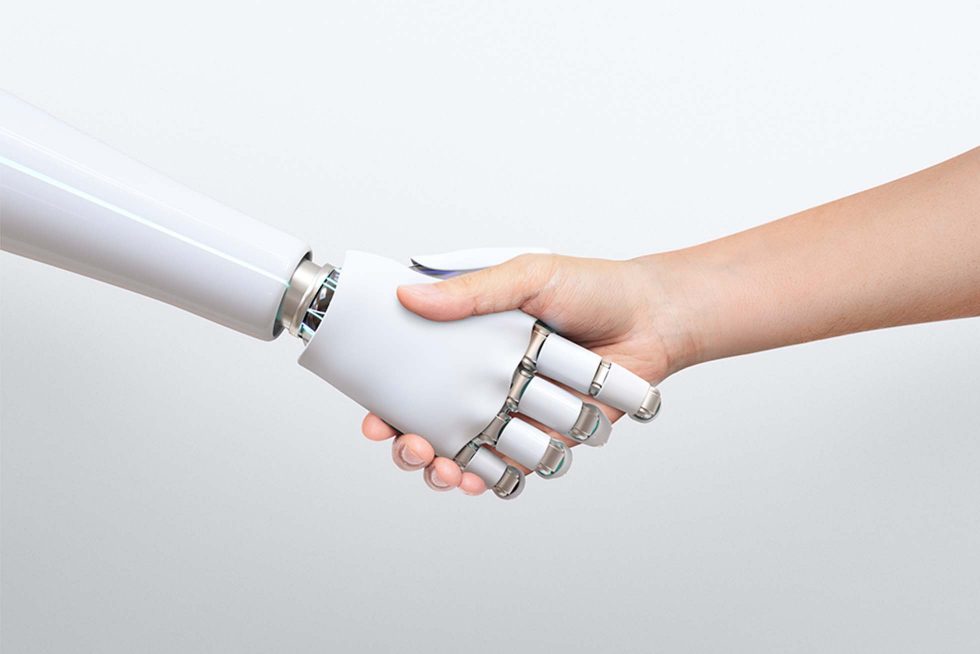Artificial intelligence (AI) is rapidly transforming the way we work, disrupting industries, and creating new opportunities. From automation and augmented decision-making to intelligent assistants and predictive analytics, AI is revolutionizing various aspects of work. In this blog post, we will explore the impact of AI on the future of work and the implications it has for businesses and employees.
Automation and Job Transformation:
AI-driven automation is reshaping traditional job roles and tasks. Routine, repetitive tasks that can be easily automated are being handed over to AI-powered systems, freeing up human workers to focus on higher-value, creative, and strategic activities. While this may lead to certain job displacements, it also presents opportunities for upskilling and reskilling employees to take on more complex and specialized roles that leverage AI technologies.
Augmented Decision-Making:
AI is augmenting human decision-making by providing powerful insights and recommendations based on extensive data analysis. Advanced machine learning algorithms can process vast amounts of information, identify patterns, and predict outcomes, enabling employees to make more informed and data-driven decisions. This augmentation of decision-making enhances productivity, efficiency, and accuracy across various industries and professions.
Intelligent Assistants and Chatbots:
AI-powered intelligent assistants and chatbots are transforming customer service and support functions. These virtual assistants can interact with customers, answer queries, provide information, and offer personalized recommendations, all in real-time. By automating routine customer interactions, businesses can improve response times, enhance customer experiences, and free up human agents to handle more complex inquiries.
Predictive Analytics and Insights:
AI enables organizations to leverage predictive analytics to anticipate customer behavior, market trends, and business outcomes. By analyzing historical data, AI algorithms can identify patterns, forecast future trends, and provide valuable insights that inform strategic decision-making. This empowers businesses to proactively respond to market changes, optimize operations, and stay ahead of the competition.
Ethical Considerations and Human Oversight:
As AI becomes more pervasive in the workplace, ethical considerations and human oversight become crucial. Businesses must ensure transparency, accountability, and fairness in AI algorithms and decision-making processes. Ethical guidelines and regulations are essential to prevent biases, protect privacy, and maintain trust. Human involvement and oversight are necessary to ensure responsible AI use and to make critical judgments that go beyond the capabilities of AI systems.
Collaborative AI and Human-AI Interaction: The future of work will involve a collaborative approach, where humans and AI systems work together synergistically. AI can augment human capabilities, providing support, insights, and automation, while humans bring creativity, empathy, and critical thinking. This collaborative environment fosters innovation, problem-solving, and the ability to tackle complex challenges effectively.
Automation and Job Transformation:
AI-driven automation is reshaping traditional job roles and tasks. Routine, repetitive tasks that can be easily automated are being handed over to AI-powered systems, freeing up human workers to focus on higher-value, creative, and strategic activities. While this may lead to certain job displacements, it also presents opportunities for upskilling and reskilling employees to take on more complex and specialized roles that leverage AI technologies.
Augmented Decision-Making:
AI is augmenting human decision-making by providing powerful insights and recommendations based on extensive data analysis. Advanced machine learning algorithms can process vast amounts of information, identify patterns, and predict outcomes, enabling employees to make more informed and data-driven decisions. This augmentation of decision-making enhances productivity, efficiency, and accuracy across various industries and professions.
Intelligent Assistants and Chatbots:
AI-powered intelligent assistants and chatbots are transforming customer service and support functions. These virtual assistants can interact with customers, answer queries, provide information, and offer personalized recommendations, all in real-time. By automating routine customer interactions, businesses can improve response times, enhance customer experiences, and free up human agents to handle more complex inquiries.
Predictive Analytics and Insights:
AI enables organizations to leverage predictive analytics to anticipate customer behavior, market trends, and business outcomes. By analyzing historical data, AI algorithms can identify patterns, forecast future trends, and provide valuable insights that inform strategic decision-making. This empowers businesses to proactively respond to market changes, optimize operations, and stay ahead of the competition.
Ethical Considerations and Human Oversight:
As AI becomes more pervasive in the workplace, ethical considerations and human oversight become crucial. Businesses must ensure transparency, accountability, and fairness in AI algorithms and decision-making processes. Ethical guidelines and regulations are essential to prevent biases, protect privacy, and maintain trust. Human involvement and oversight are necessary to ensure responsible AI use and to make critical judgments that go beyond the capabilities of AI systems.
Collaborative AI and Human-AI Interaction: The future of work will involve a collaborative approach, where humans and AI systems work together synergistically. AI can augment human capabilities, providing support, insights, and automation, while humans bring creativity, empathy, and critical thinking. This collaborative environment fosters innovation, problem-solving, and the ability to tackle complex challenges effectively.




